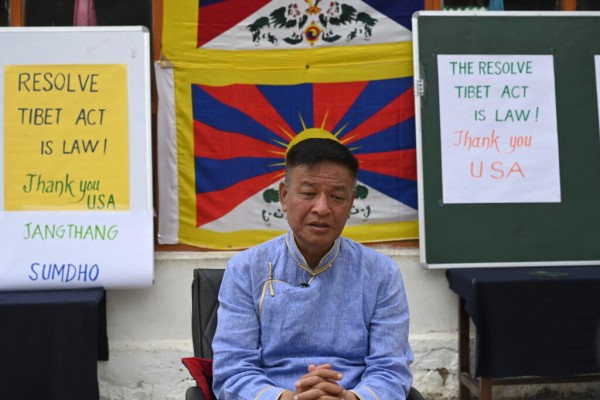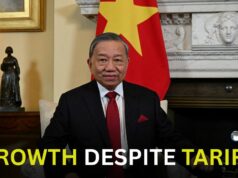China expressed strong opposition on Saturday to a U.S. law signed by President Joe Biden that presses Beijing to resolve a dispute over Tibet’s demands for greater autonomy, vowing to “firmly defend” its interests.
Biden signed into law on Friday the Tibet dispute act, which seeks to push Beijing to hold talks with Tibetan leaders, stalled since 2010, to secure a negotiated agreement on the Himalayan region and spur China to address the Tibetan people’s aspirations on their historical, cultural, religious and linguistic identity.
The law “grossly interferes in China’s domestic affairs, undermines China’s interests, and sends a severely wrong signal to the ‘Tibet independence’ forces,” China’s foreign ministry said.
Promoting and Resolution to the Tibet-China Dispute Act or the Resolve Tibet Act, as it is better known, authorises the use of funds to counter Chinese disinformation about Tibet “including disinformation about the history of Tibet, the Tibetan people, and Tibetan institutions, including that of the Dalai Lama.”
It also challenges the Chinese contention that Tibet has been a part of China since ancient times, and urges China to engage in meaningful and direct dialogue with the Dalai Lama or his representatives, as well as democratically elected leaders of the Tibetan community “without preconditions, to seek a settlement that resolves differences.”
“Xizang (China’s official name for the Tibet Autonomous Region) has been part of China since ancient times,” the Chinese foreign ministry statement reiterated on Saturday. “Xizang affairs are China’s internal affairs which brook no interference by any external forces,” it said.
“Xizang is making fresh progress in effectively running its society, maintaining social stability, and achieving high-quality development. No one and no force should ever attempt to destabilize Xizang to contain and suppress China. Such attempts will never succeed,” it added
“The U.S. must not implement the Act. If the U.S. continues down the wrong path, China will take resolute measures to firmly defend its sovereignty, security and development interests,” it warned.
Although Washington recognises Tibet as a part of China, the law appears to question that position, some analysts say. The U.S. has long supported the rights of the Tibetan people to practice their religion and culture, accusing China of human rights violations in the remote region bordering India.
Attention has focussed on Tibet-China issues as the Dalai Lama, recuperating from a medical procedure, turned 89 last week. The exiled spiritual leader has said he will clarify questions about his succession around his 90th birthday, while China insists it will choose his successor.
Beijing had made similar protests in June when a bipartisan US congressional delegation, led by House Foreign Affairs Committee Chairman Michael McCaulis, met the Tibetan spiritual leader in Dharamshala, the seat of the Tibetan government in exile.
(With Inputs From REUTERS)
In a career spanning three decades and counting, Ramananda (Ram to his friends) has been the foreign editor of The Telegraph, Outlook Magazine and the New Indian Express. He helped set up rediff.com’s editorial operations in San Jose and New York, helmed sify.com, and was the founder editor of India.com.
His work has featured in national and international publications like the Al Jazeera Centre for Studies, Global Times and Ashahi Shimbun. But his one constant over all these years, he says, has been the attempt to understand rising India’s place in the world.
He can rustle up a mean salad, his oil-less pepper chicken is to die for, and all it takes is some beer and rhythm and blues to rock his soul.
Talk to him about foreign and strategic affairs, media, South Asia, China, and of course India.





